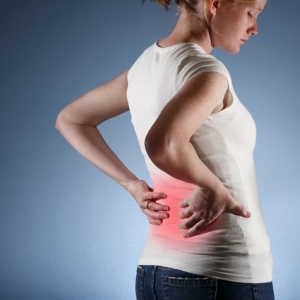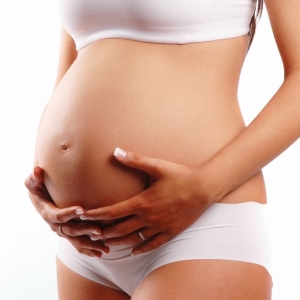Cystitis is an infectious and inflammatory lesion of the inner ball bladder. Manifests cystitis more often in girls due to the special structure of the urogenital system. It happens in the interval between the 4th and 12th year of life. How does the disease occur in the kids and what contributes to its development?
Cystitis in children - causes of the disease
The urinary system is arranged in such a way that the kidney couple departs along a separate ureter, which is connected to the bladder. The latter represents their own organ that collects, and then takes urine from the body. All its inner ball is represented by the mucous membrane with a plurality of nervous endings and a complex blood grid. It is she who is the most vulnerable place of the bladder.
Inflammation of the mucous bladder is called cystitis and it can appear for various reasons:
- Bacterial infection of the urogenital system. The causative agent can be a blue chopstick, protea, klebseyella, mycoplasma.
- Viral damage to the organ. Provoke cystitis capable adenoviruses, herpes.
- Penetration of fungi genus Candida. In the risk group of kids with immunodeficiency, anomalous structure of the urogenital system, passing the course of antibiotic therapy.
- Neurodis feature. This is a nervous disorder causing the urinary bubble dysfunction, which is deficiently filled, and then it is badly emptied.
- Bubble-ureteral reflux. The pathology of the body, causing a return back of urine in the kidneys.
- An abnormal structure of the urethra (the lumen of the urinary channel is narrowed and hampers the urine outlet, causing this inflammatory process).
- Phimosis Pathology of extreme flesh found in boys.
- The urinary bubble diverticulus. The organ inside has recesses that violate urine current.
- Vulvovaginitis in the girl (the infection quickly penetrates the urethra and rises into the bladder).
- Purulent inflammatory diseases can provoke cystitis. The threat represents the angina, ommopalitis, as well as stafilodermia and pneumonia.
- Helmintosis (parasites can migrate from anal hole in the vagina, infecting the urethra).
- Intestinal infections, dysbacteriosis is often disturbed by the microflora in the bladder.
- Endocrine disorders, including diabetes, also violate the work of the organ.
In addition, cystitis in a child can cause insufficient personal hygiene, hypovitaminosis, overwork, as well as chronic constipation.

Symptoms of cystitis in children
Cystitis in the kids of different age categories is manifested in its own way. At the kids up to a year to cystitis, such complaints are indicated:
- Increase body temperature.
- Very frequent or too rare urination.
- Baby anxiety during sleep.
- Dusty and long crying.
- Changing urine color.
In the kids after a year, signs are somewhat different:
- Urban syndrome (the child is soaked every 10 minutes).
- The baby complains of pain around the pubis and in urethra (during urination).
- Urinary incontinence (involuntary emptying in pants).
- Terminal hematuria (after urination flows 1-2 drops of blood).
- Water stained in a dark shade.
- The smell of urine is intense, unpleasant.

Diagnosis of cystitis in children
Cystitis is determined not only on the basis of a child's complaints, but also on the results obtained during the diagnostic procedures.
At the first symptoms of the disease, you need to immediately contact the doctor. After an inspection, it will assign several analyzes at once. It can be:
- Tank Sowing Urin.
- General urine analysis and capillary blood.
- Biochemical studies of urine.
- Ultrasound of the urinary organs.
Important! When examining, the doctor should be differentiated cystitis from paraproatitis, appendicitis, vulvovaginitis, as well as phimosis and balanitis.

Cystitis - features of treatment in children
With acute cystitis, drug treatment is shown. The following scheme can be assigned to the child:
- Abundant drinking - children up to a year the amount of fluid increases to 500 ml, from 1 to 5 years - at least 1 l, at school age - more than 2 liters. Recommended drinks with antibacterial effect - cranberry and brushing juice, lemon tea.
- Diet - exclude products irritating mucous membrane. These are spices, smoked, broths, soda, sorrel, chocolate.
- Medicines - more often appoint Wrospectrals (Mongoral, Furamag), less often - sulfonamides (Biseptol). In difficult cases, antibiotics are additionally shown. For children, Augmentin or Flemoclav Soluteab are used.
The course of treatment is 3-7-10 days depending on the dynamics of clinical indicators.































